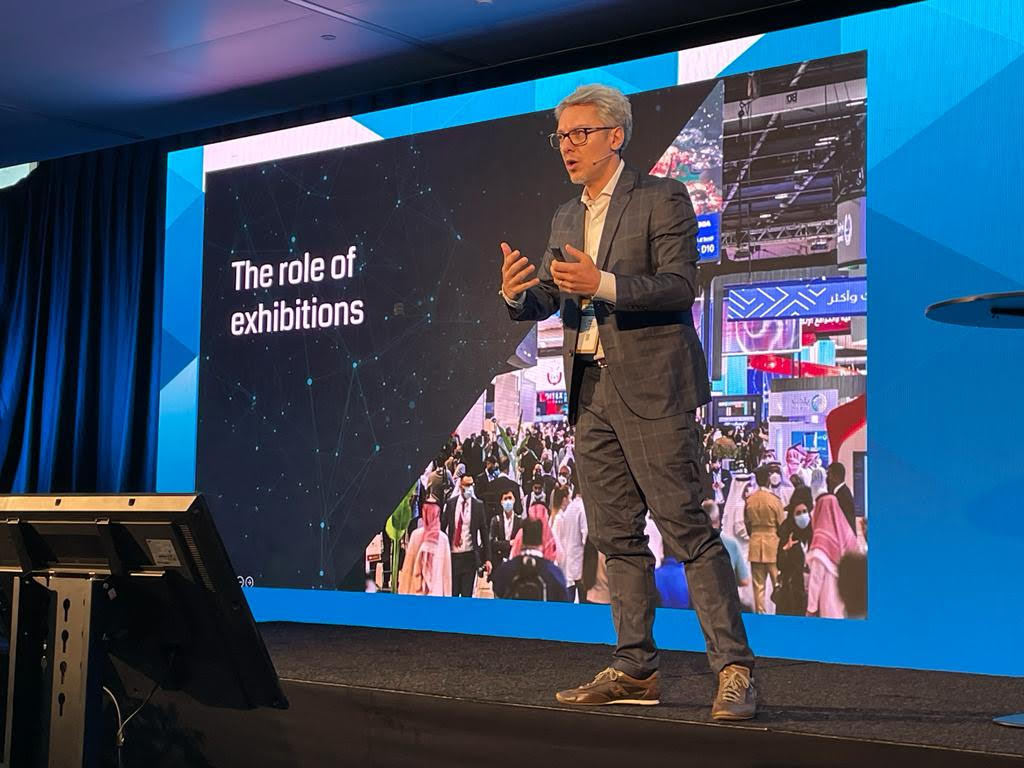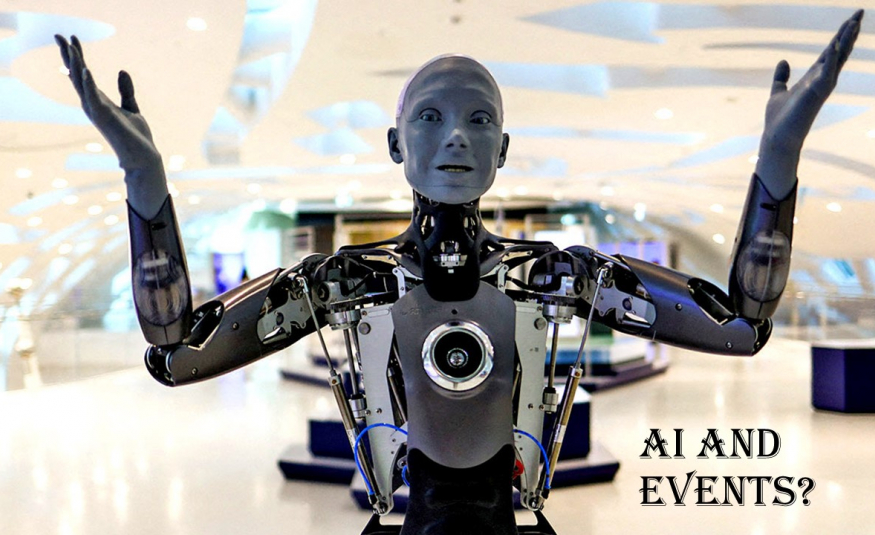Enrico Gallorini (pictured below) discusses with EW his recent presentation at the UFI European Conference in Maastricht
At the recent UFI European Conference in Maastricht, Enrico Gallorini tackled the subject of AI from a fascinating new perspective: the philosophical one. His thoughts on the topic went beyond the current debate on this incredible technological evolution, to touch more deeply the profound impact that this new tech will have on humans and consequently our industry.
Gallorini emphasises the advent of AI as a grand opportunity, yet one that brings with it a weighty responsibility for the exhibition industry, given that events represent the maximum of human2humans interactions, and play an influential role in leading sectors’ innovation and evolution.

EW: In your recent speech at the UFI European Conference, your presentation, or rather ‘Philosophical Dissertation’, you touched on the topic of AI researchers distancing themselves from their work. Why is this is happening?
It is an intriguing phenomenon. AI has been under development for many decades, often lacking the necessary attention or financial backing. But now, as the technology reaches a level of maturity and is becoming mainstream, its key architects and researchers are stepping back. Pioneers like Geoffrey Hinton and other leaders such as Yoshua Benjio, Gary Marcus, and Eric Horvitz from Microsoft, have all expressed their concerns.
This goes beyond just being a technological or ethical problem, it’s a profound epistemological issue.
EW: Can you delve a bit deeper into these concerns?
The worries range from the proliferation of fake news, job automation, cyber-attacks, to military applications of AI, but that was also the case before the arrival of ChatGPT. The primary issue lies in the passage from development for the scope of research, passing now to business, and becoming a ‘competitive development model’ for AI itself, endorsed by giants like OpenAI and Google.
The launch of ChatGPT by OpenAI and the rapid adoption of similar generative AI solutions have disrupted the industry dynamics. This pushes companies like Google to swiftly deploy their AI technologies, which could lead to unforeseen consequences in the future battle of AI to best each other.
The reality is that now the AI is not driven for research purposes, but driven by profits, and this changes everything.
EW: Geoffrey Hinton has mentioned, “We will no longer be sure of what is true and what is false.” How does this play out in the context of the exhibition industry?
Hinton’s concern echoes a deeper issue in human2human relationships in the AI era. If we can no longer distinguish reality from fake through machines and technologies, the importance of unmediated, face-to-face interactions becomes paramount. This is where exhibitions hold a fundamental role, and this is the main objective of the exhibition. This is the foundation of events!
EW: So, you believe the role of exhibitions will become even more critical in the future?
Absolutely. Exhibitions have a significance that goes beyond competitiveness; they serve a vital social function in human development.
As an industry, we need to recognise and embrace this new challenge for the good of our sector, and in general for the good of humanity. The specialised, collective moments where the people gather together to see the future and co-create the future (that we simplify in the word: ‘Exhibition’) has always been crucial in human evolution and development, but its value is now scaling up.
We should not underestimate this change, because AI it is not only a ‘high tech new trigger’, we have to be clear in mind that this is the first time in the history that the ‘language processing’ is no more an ability only of humans (other living species do not have the ability of articulating language), and this is a huge cultural and intellectual challenge.
Machines are now able to simulate natural language processing and that means they act ever more real day by day.
EW: At the end of you presentation you highlighted the importance of building a ‘narrative’ for our industry related to AI, why?
This intellectual challenge is for sure a huge advantage for exhibitions because, as mentioned, our sector represents by default the maximum expression of human2humans interactions. But a part of the big opportunity and advantage that we have means it is important also to understand the responsibility of humans2humans moments.
Already we are no more able to understand if the email we received is written by a real person or its ‘AI’ co-pilot technology. Soon we will no more distinguish if we will speak via phone or video call with humans or Artificial Agents.
The importance of exhibitions to fully interact with humans without ‘machines’ as intermediaries will be incredibly important, and with this there is a responsibility too, that has to be discussed, with deeper comprehension.
EW: And how can the industry contribute and participate?
For now we are starting to build and share ideas through LinkedIn, this is the UFI Digital Innovation Group.





